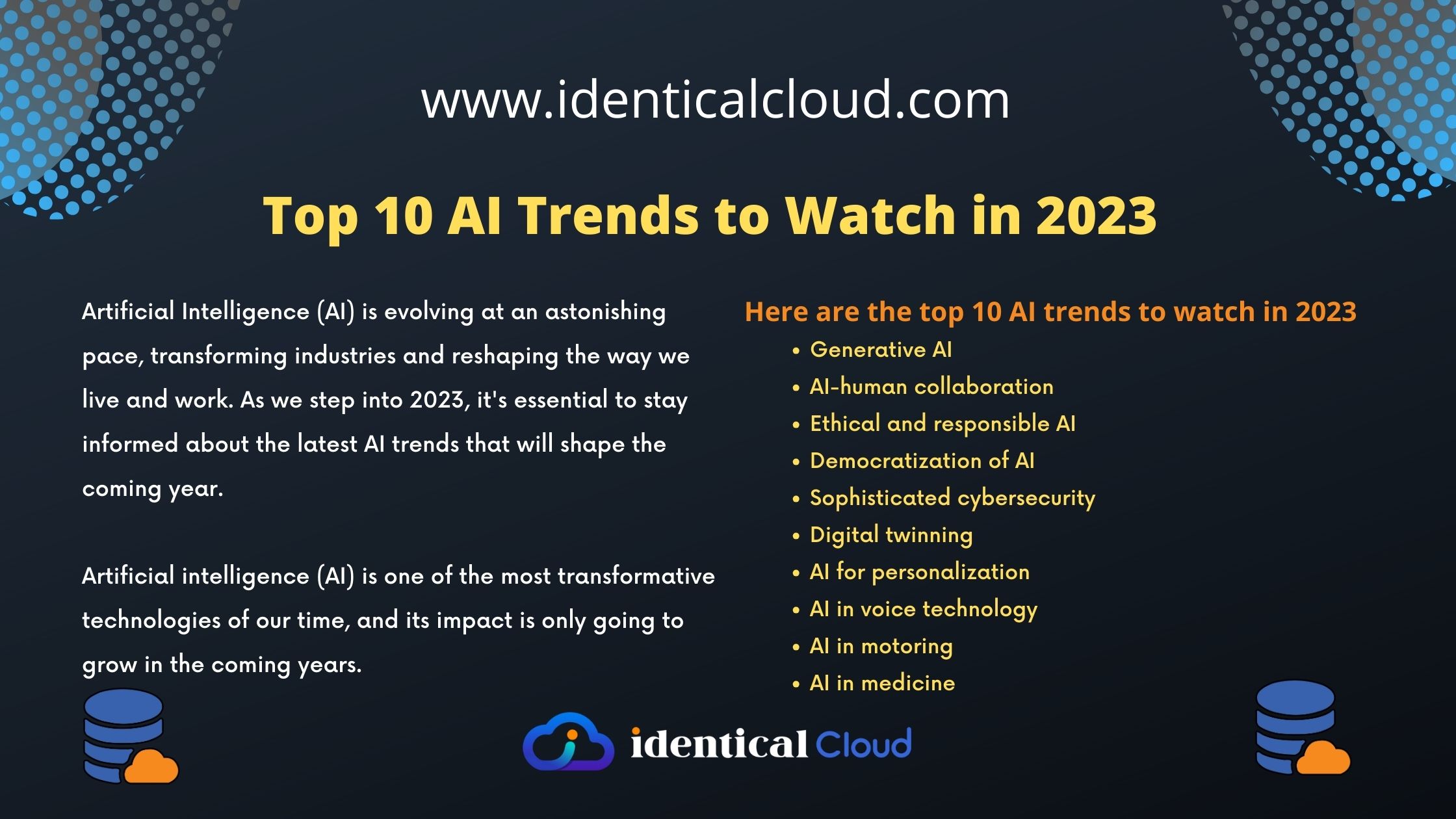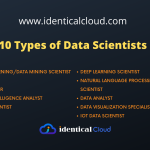The Future of AI: What You Need to Know
The Future of AI: What You Need to Know
Artificial Intelligence (AI) has rapidly progressed in recent years, and its future holds great potential and possibilities. From automation to personalized experiences, AI is transforming industries and reshaping the way we live and work. In this blog, we will delve into the details of the future of AI, exploring its impact on various sectors and the considerations it brings.
Accelerating Technological Advancements
The field of AI is witnessing exponential growth, driven by technological advancements. AI algorithms and models are becoming increasingly sophisticated, enabling automation and solving complex problems. This progress opens up opportunities for innovative applications in fields like robotics, natural language processing, computer vision, and more.
Increased Automation
Automation is a significant outcome of AI advancement. Tasks that were once performed exclusively by humans are now being taken over by AI systems. This shift leads to enhanced efficiency and productivity across industries such as manufacturing, transportation, healthcare, and customer service. The future holds the potential for further automation, which can streamline processes and optimize resource utilization.
Enhanced Decision-Making
AI algorithms excel at analyzing vast amounts of data, leading to improved decision-making. In the future, AI systems will provide valuable insights and predictions, aiding individuals and organizations in making informed choices. This has implications for finance, business strategy, healthcare diagnostics, personalized recommendations, and more. AI’s ability to process and interpret data at scale will help uncover patterns and trends that humans may overlook.
Ethical Considerations
As AI becomes increasingly integrated into our lives, addressing ethical considerations becomes crucial. Questions arise about data privacy, bias in algorithms, and the impact of AI on employment. Striking a balance between innovation and ethical responsibility will be pivotal. Governments, organizations, and individuals must work together to establish regulations, guidelines, and ethical frameworks to ensure the responsible development and use of AI.
Improved Personalization
Personalization is a key aspect of AI’s future. AI algorithms can tailor experiences to individual preferences and needs, impacting various aspects of our lives. From personalized recommendations in entertainment and e-commerce to personalized healthcare and education, AI will offer customized solutions. This level of personalization has the potential to enhance user satisfaction, engagement, and overall quality of life.
AI-powered Healthcare
The healthcare industry stands to benefit significantly from AI advancements. AI can revolutionize diagnosis and treatment recommendations, drug discovery, patient monitoring, and robotic surgery. By leveraging AI technologies, healthcare providers can improve patient outcomes, enhance efficiency, and reduce costs. AI-powered solutions can analyze medical data, detect patterns, and assist healthcare professionals in delivering accurate and timely care.
Enhanced Customer Experiences
AI technologies like natural language processing and machine learning can transform customer experiences. Virtual assistants, chatbots, and personalized messaging systems can provide real-time support and assistance to customers, improving satisfaction levels and streamlining customer service processes. AI can analyze customer data to offer tailored recommendations, resulting in more interactive and engaging experiences.
Collaboration between Humans and AI
The future of AI is not about replacing humans; it’s about augmenting human capabilities. Collaborative efforts between humans and AI systems will become more prevalent. AI can handle repetitive and mundane tasks, while humans focus on higher-level decision-making, creativity, and problem-solving. This collaboration can redefine work dynamics and create new opportunities for innovation and growth.
AI in Transportation
The transportation sector is poised for significant transformation with the integration of AI. Self-driving cars and trucks powered by AI algorithms can revolutionize transportation systems, improving safety, reducing traffic congestion, and optimizing fuel consumption. AI can also optimize logistics and supply chain management, making processes more efficient and responsive to changing demands.
Continued Research and Development
The field of AI is continuously evolving, with ongoing research and development driving its progress. Investments in AI research, advancements in hardware capabilities, and the exploration of new algorithms will shape the future of AI. Collaborative efforts between academia, industry, and government will be essential to unlock the full potential of AI technology and address emerging challenges.
The future of AI holds immense promise and potential. As AI continues to advance, it will reshape industries, enhance decision-making, personalize experiences, and revolutionize various aspects of our lives. However, it is crucial to navigate this transformation thoughtfully and responsibly, addressing ethical considerations and ensuring AI benefits society as a whole. With the right approach, we can embrace the future of AI and harness its power to create a better tomorrow.







